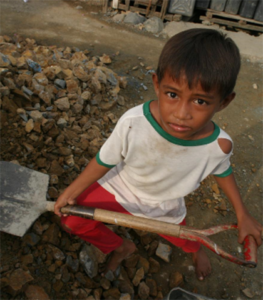Agreement reached on child labour ban
A major breakthrough in stamping out child labour was achieved this month when all nations which are members of the International Labour Organisation (ILO) agreed to protocols ending dangerous work for children.
All 187 member countries of the International ILO have now ratified ILO Convention No. 182 on the worst forms of child labour, committing to eliminate hazardous work endangering children around the world. Tonga’s ratification of the convention marks the first time in history that a labor convention has achieved universal ratification.
Tonga’s ratification of the convention marks the first time in history that a labor convention has achieved universal ratification.
A statement from the ILO said the agreement would trigger national reforms and translate to change on the ground.
“Global commitment to end child labor is sorely needed, as experts warn the Covid-19 pandemic could reverse decades of progress,” the statement said.
“Widespread school closures, and the economic hardships families are facing mean more children are at risk of missing out on education and getting involved in dangerous work,” it said.
In May, UNICEF and Save the Children reported that without urgent action 672 million children could be living in poverty by the end of 2020, an increase of 15 percent in one year.
Many children who are refugees or displaced persons are vulnerable to being exploited as child workers.
A recent ILO report cited dozens of instances of children involved in hazardous child labour.
It reported children in the Philippines having to dive into cold, deep, waters to mine for gold, breathing through an oxygen tube clenched between their teeth, and using toxic mercury to process gold they found.
The report said that in Indonesia, the US and Zimbabwe, children working on tobacco farms described backbreaking work cultivating and harvesting tobacco.
Many reported vomiting, nausea or dizziness; or searing headaches while working with the plants – all symptoms of acute nicotine poisoning, which happens when nicotine is absorbed through the skin.
The report says poverty frequently drives children out of school and into child labor.
It says governments should invest in social protection programs to support families living in poverty, remove barriers to education for all children, and create strong laws and policies to identify and root out the worst forms of child labor.
“Today is a day to celebrate. Universal ratification of the ILO Convention No. 182 is an important sign of a global commitment to ending hazardous child labor,” the ILO statement said.
“But governments should take concrete action to protect all children from such work. And given new challenges posed by the pandemic, it is more important than ever,” it said.
Read the ILO convention here: https://www.ilo.org/dyn/normlex/en/f?p=NORMLEXPUB:12100:0::NO::P12100_ILO_CODE:C182












